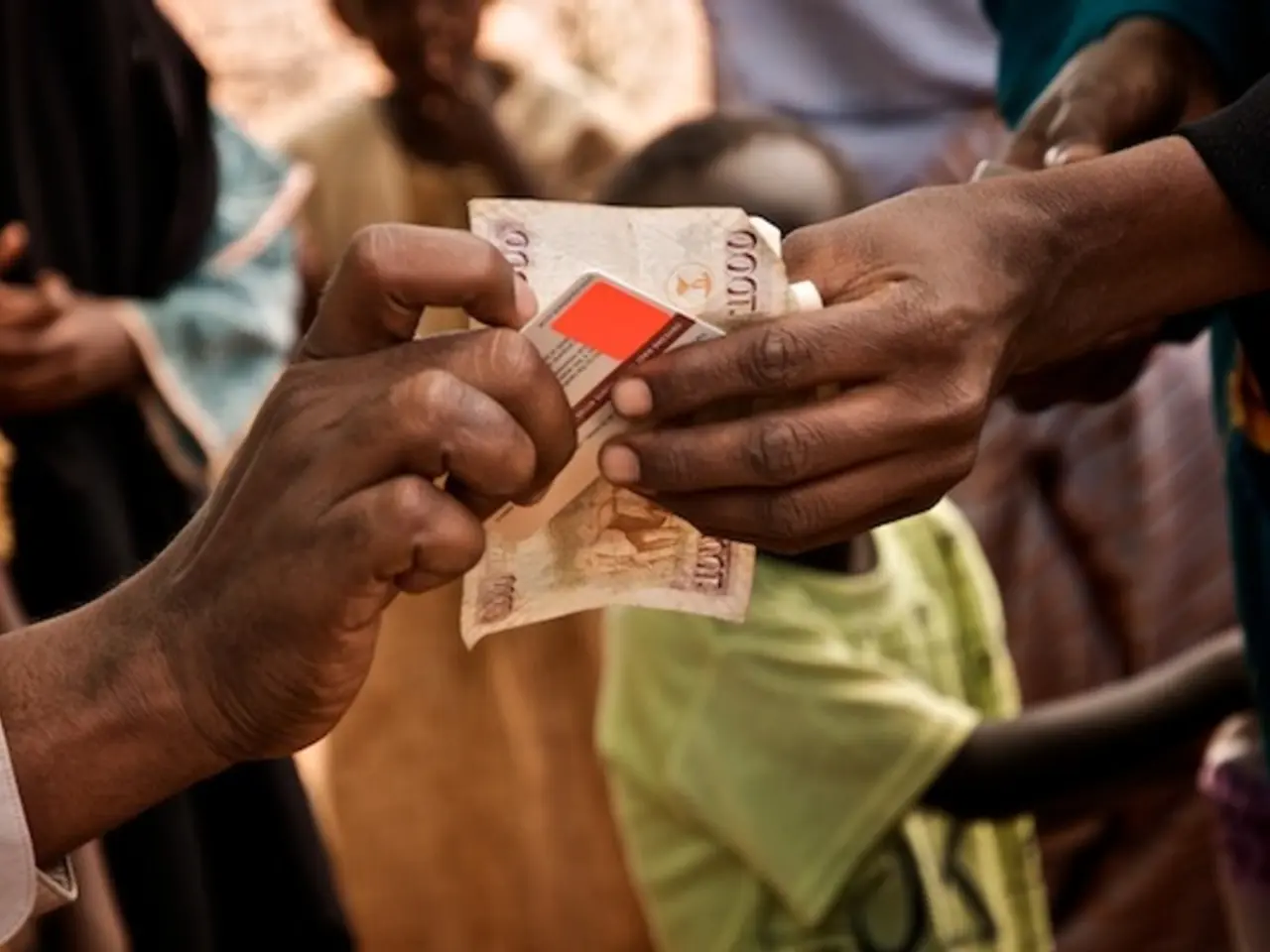Acceleration in the progress of carbon markets
Vietnam is making strides in the fight against climate change by planning to establish a domestic carbon market. This move is crucial for the foundation of Vietnam's forest carbon market and aligns with global efforts to combat greenhouse gas emissions.
Over 80 countries have already adopted carbon pricing mechanisms, either through carbon taxes or emissions trading systems. Among these are the European Union, Singapore, and China, which have reported significant reductions in emissions. Vietnam aims to join this list, with the Ministry of Finance submitting a draft decree on establishing a carbon exchange platform in the country.
However, the journey is not without challenges. Nguyen Dinh Tho, deputy director of the Institute for Strategy and Policy on Agriculture and Environment, highlighted several challenges for the implementation of Vietnam's carbon market. These include the lack of detailed guidelines, inter-agency coordination issues, underdeveloped data-sharing mechanisms, and an early-stage measurement, reporting, and verification system.
Betty Pallard, CEO of ESG Climate Consulting, believes Vietnam has the potential to become a major player in the carbon credit space. Pallard emphasized the importance of branding and credibility when introducing carbon credits to international buyers, suggesting Vietnam should emphasize the community efforts, cultural, environmental, and historical value embedded in each credit.
To address these challenges, the Government's revised roadmap, effective August 2025, prioritizes building foundational components like a national carbon registry and piloting a carbon exchange between 2025 and 2028. Capacity-building efforts are also part of the plan, followed by the introduction of a quota auction system from 2029 onwards.
Le Quang Linh, an adviser at the carbon finance firm Giant Bard, mentioned viable solutions for generating carbon credits in Vietnam, such as producing biochar from agricultural residues, capturing biogas from pig farming for electricity generation, and incinerating waste to produce power.
The Government aims to complete all relevant legal and technical infrastructure by the end of this year to support the pilot programme. The national implementation plan approved in 2021 anchors Vietnam's efforts to achieve net-zero greenhouse gas emissions by 2050. The transition to a low-carbon economy in Vietnam is expected to require significant financial resources, and green financial instruments like carbon pricing and trading are considered essential for mobilizing capital.
The Ministry of Agriculture and Environment is preparing legislation on international emissions trading and carbon credit transfers in Vietnam. The government is currently finalizing the legal and technical frameworks for piloting the carbon market by the end of 2022. Vietnam is planning to operate a domestic carbon market by 2029, following the approval of a national carbon market development plan in January 2022.
Tho recommended selecting a transparent model with strong government oversight for the carbon exchange platform. Quang warned about the potential issue of emissions reductions being counted towards the purchasing country's targets rather than Vietnam's, without strict oversight in international carbon credit trading.
With these challenges and opportunities in mind, Vietnam is poised to make a significant impact in the global fight against climate change, fostering green finance and sustainable development while supporting its own climate commitments.
References: [1] Ministry of Finance, Vietnam. (n.d.). Draft Decree on Carbon Exchange Platform. Retrieved from https://mof.gov.vn/vi/thong-tin-tin-tuc/thong-bao/2022/04/19/thong-tin-ve-van-ban-chuong-trinh-thi-truong-he-thong-chuyen-doi-quy-gia-co2-toi-uu-va-chu-ky-cua-ban-hanh-chinh-quoc-gia-va-noi-dung-van-ban-tham-gia-chuong-trinh-thi-truong-he-thong-chuyen-doi-quy-gia-co2-toi-uu-cua-quoc-gia-A-n-145.
[2] Ministry of Agriculture and Environment, Vietnam. (n.d.). National Implementation Plan for Carbon Market Development. Retrieved from https://moa.gov.vn/vi/thong-tin-tin-tuc/thong-bao/2021/12/09/thong-tin-ve-van-ban-chuong-trinh-thi-truong-he-thong-chuyen-doi-quy-gia-co2-toi-uu-cua-quoc-gia-A-n-144.
[4] Pallard, B. (2022). Opportunities and Challenges in Developing Vietnam's Domestic Carbon Market. Retrieved from https://esgclimateconsulting.com/opportunities-and-challenges-in-developing-vietnams-domestic-carbon-market/.
[5] Linh, L. Q. (2022). Potential Carbon Credits Generation Solutions in Vietnam. Retrieved from https://giantbard.com/potential-carbon-credits-generation-solutions-in-vietnam/.
- Vietnam is aligning its business and economy with global efforts to combat climate change by planning to establish a domestic carbon market, following the lead of over 80 countries that have adopted carbon pricing mechanisms.
- The Ministry of Finance's draft decree on establishing a carbon exchange platform in Vietnam is crucial for the foundation of Vietnam's forest carbon market, as the country aims to join the ranks of countries like the European Union, Singapore, and China that have reported significant reductions in emissions.
- Nguyen Dinh Tho highlighted challenges in implementing Vietnam's carbon market, such as the lack of detailed guidelines, inter-agency coordination issues, underdeveloped data-sharing mechanisms, and an early-stage measurement, reporting, and verification system.
- Betty Pallard believes Vietnam has the potential to become a major player in the carbon credit space, emphasizing the importance of branding and credibility when introducing carbon credits to international buyers, and suggesting Vietnam should emphasize the community efforts, cultural, environmental, and historical value embedded in each credit.
- The Government's revised roadmap prioritizes building foundational components like a national carbon registry and piloting a carbon exchange between 2025 and 2028, followed by capacity-building efforts and the introduction of a quota auction system from 2029 onwards.
- Le Quang Linh mentioned viable solutions for generating carbon credits in Vietnam, such as producing biochar from agricultural residues, capturing biogas from pig farming for electricity generation, and incinerating waste to produce power.
- With strict government oversight, a transparent model for the carbon exchange platform is recommended, to avoid potential issues like emissions reductions being counted towards purchasing country's targets rather than Vietnam's.
- The transition to a low-carbon economy in Vietnam is expected to require significant financial resources, and green financial instruments like carbon pricing and trading are considered essential for mobilizing capital.
- The Ministry of Agriculture and Environment is preparing legislation on international emissions trading and carbon credit transfers in Vietnam, while the government is finalizing the legal and technical frameworks for piloting the carbon market by the end of 2022.
- With these challenges and opportunities in mind, Vietnam is poised to make a significant impact in the global fight against climate change, fostering green finance and sustainable development while supporting its own climate commitments, as outlined in the national implementation plan approved in 2021.




